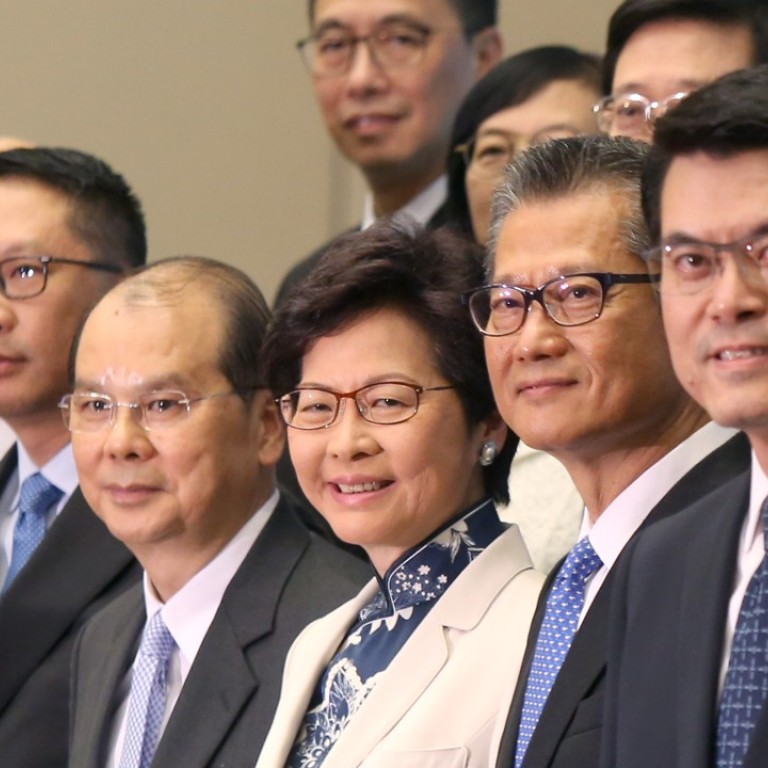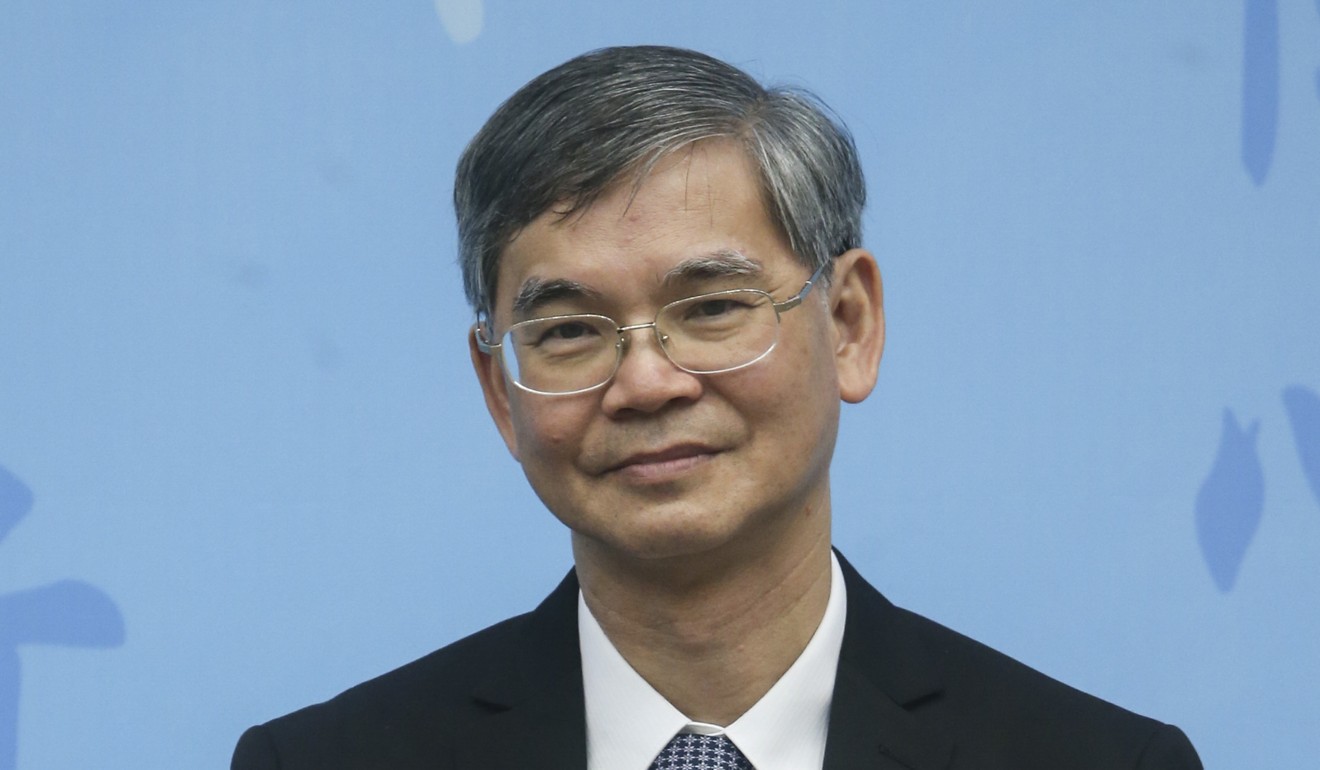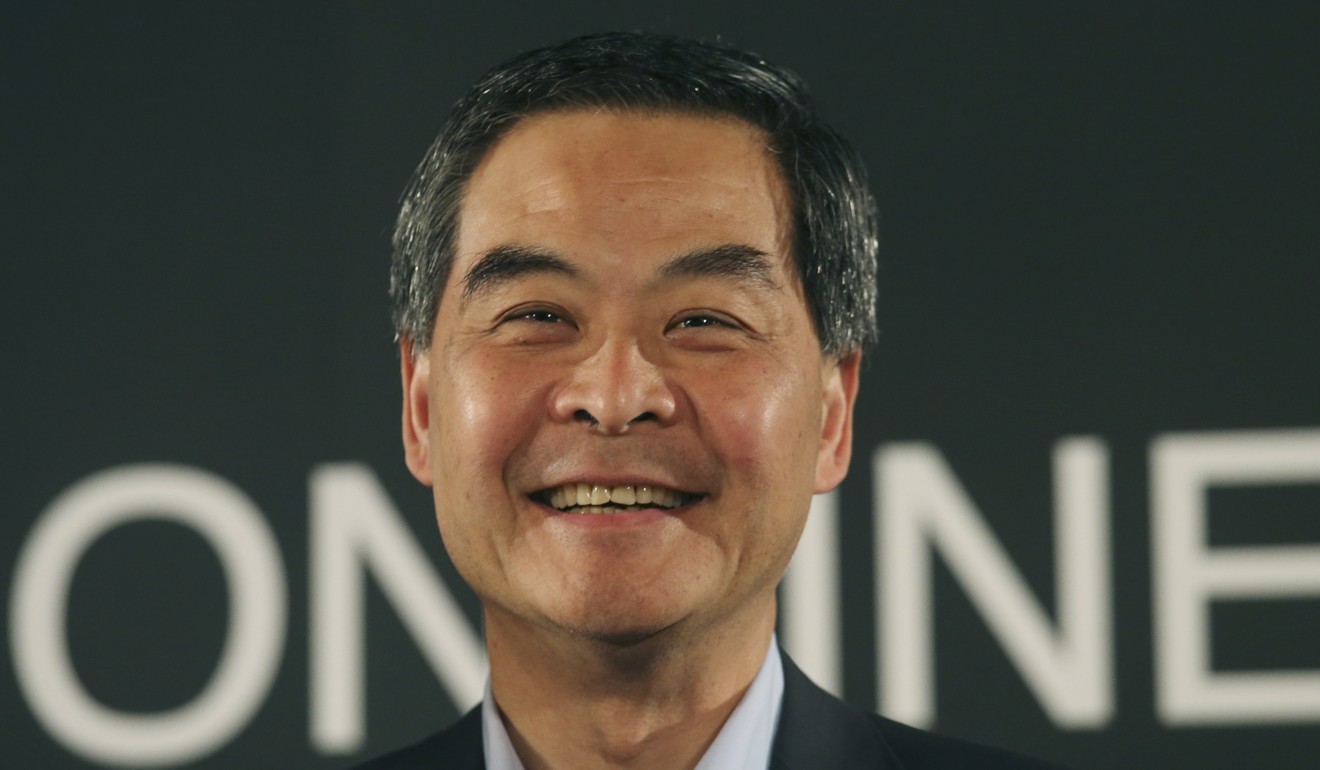
New Hong Kong leader Carrie Lam set to face labour timebombs
Chief executive-elect will have to get to grips with two contentious issues – working hours and the pension fund offset mechanism
By the time Carol Chan Im-mui returned home 19 hours after she left for work in Hong Kong, her family was already fast asleep.
Completely worn out, she collapsed on the sofa. She then took a shower, watched a bit of television and went to sleep. She went through the same exhausting ordeal the next day.
It was 7.30am when she left home for her accounting job. She returned home at 2am.
“I once had a colleague crying in front of me. One day, she was ready to leave the office at 6pm to see her father, who was in hospital. Her boss asked why she was leaving so early and told her to leave only after she finished her work. She eventually stayed in the office but was crying all the time,” said Chan, 53.
Chan resigned from the company a few years ago.
“It was extremely tough working overtime like that in those days. For a few months back then, I didn’t have the chance to have dim sum with my family,” Chan said.
Her contract said her worklng hours as an assistant accountant were from 9am to 6pm. But soon after she started, she found herself working 11 hours on most days and at times until after midnight.
The government estimated that would cost employers HK$524 million a year and benefit an estimated 550,000 part-time and full-time workers – accounting for only about 14 per cent of the city’s workforce.
Written contracts would be required and it would be left to both parties to thrash out the number of working hours.
But because Chan was paid more than HK$11,000, she – along with many teachers, lawyers, doctors and security guards – would not be covered.
Watch: Carrie Lam’s very familiar cabinet
In her election manifesto, Lam wrote that she would “identify a policy direction for working hours appropriate to Hong Kong’s social and economic conditions”.
The problem is that Leung has already identified the direction for her. The Leung administration wants a draft amendment bill ready in 2018 for tabling in the Legislative Council and implementation by the end of 2020 or early 2021.
“That is a really bad proposal. In a way, the government is punishing people who earn more than that level. My question is why?” Chan asked. “I don’t think Carrie Lam will make changes to the proposal. I don’t have expectations of her.”
Another hot potato that Lam must handle is the controversy about the offsetting mechanism.
At present, it allows employers to offset long service and severance payments with their contributions to staff Mandatory Provident Fund accounts.
Last year, HK$3.85 billion was offset by employers – up a staggering 70 per cent from HK$2.27 billion in 2012.
With the Exco green light, Leung fulfilled his 2012 election promise. But, at the same time, he left a potential fire for Lam to put out. The business sector called the move “reckless”, warning that entrepreneurs would be discouraged from starting businesses. The labour sector was also up in arms as the government had watered down the formula for calculating long service and severance payments.

In Lam’s election manifesto, she vowed to “listen to both the employees and employers, especially those from small and medium enterprises, and strive to reach a consensus.”
She now has little if any room to manoeuvre on the issue.
But despite being driven into a corner, political commentator Johnny Lau Yui-siu said that Lam could still say no to Leung’s proposals if she did not think they were the best.
“What Carrie Lam can still do is to look at what mainstream public views are. On a range of different issues, such as people’s livelihood, she can ignore Leung’s proposals if they go against mainstream public views,” Lau said, adding it was a matter of political courage.
“Was Leung digging a hole for Carrie Lam? He was making her life difficult. He did so for himself, so he can boast about his achievements later on.”
Introducing her new cabinet team, Lam said she had made many election promises and it would be difficult to fulfil all of them. But she pledged to follow up working hours and the offset mechanism “immediately”.
“If you hear speculation that Mrs Lam will be too busy to handle labour issues, especially MPF offsetting, that may not be true,” said Lam, who was formerly the chief secretary.
She did not go into details of how she would follow up on the two issues.

But sources with knowledge of the matter said the government’s MPF offset proposal was in line with Lam’s beliefs when she was the No 2 official.
“She has said that the offsetting mechanism must be scrapped because it affects people’s retirement. She has also said that she agrees there must be a limit on the government subsidy,” one source said.
Labour Advisory Board unionist member Tang Ka-piu said there was still room for Lam to manoeuvre. On working hours, he said Lam could set a clear timetable and work schedule for when, if ever, the government would consider standardising working hours for everyone regardless of their wage level.
“Come out and say that you are determined to do this and that. That’s what she can do,” Tang said.
Principal government economist Desmond Hou previously admitted that only 6 per cent of those making HK$11,000 or less worked overtime without being compensated, citing official figures.
A 2015 survey by banking group UBS found that Hong Kong people worked more than 50 hours a week on average, the highest among 71 places it polled.
Shirley Yuen, chief executive of the Hong Kong General Chamber of Commerce, said the groups had been in touch with the new administration and hoped officials would revise the Exco decision.
Leung, for his part, has made it clear that the new administration has the power to “do whatever” it wants regarding the proposal.
“I’m sure the incoming government will have its view. It may be the same as ours, it may not be,” Leung said.
But for assistant accountant Chan, her hopes for a new administration are simple.
“To be good officials, all you need to do is open your ears to hear the public’s desires, and open your eyes to see what the public needs,” she said.

